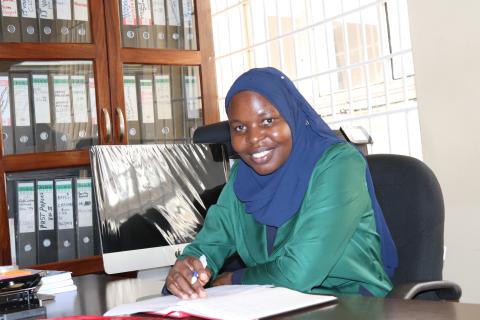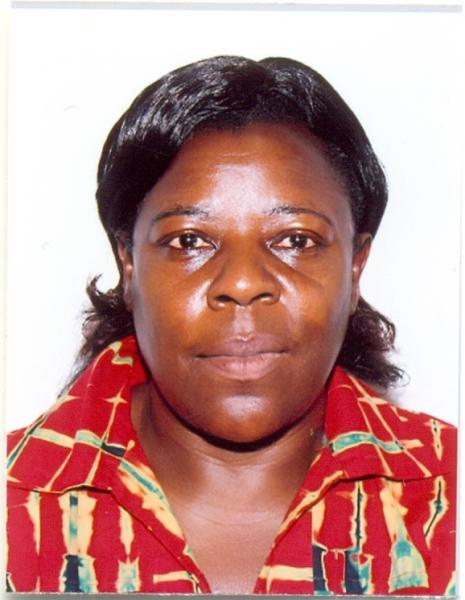
According to Dr. Aisha Sembatya Nakiwala, Government needs to prioritise the humanities when addressing societal needs because they enable us to look at the social aspects of almost everything. For example by communicating knowledge from other disciplines, people will partake, accept and use this knowledge to support and implement national policies and plans
As Chairperson of the Scientific Committee of the 2021 National Humanities Conference, Dr. Nakiwala noted that Government and Makerere University accord very little relevance to the humanities and social sciences compared to the pure sciences.
“My special call to the university and especially to the university management is to join hands with us, the researchers, scholars and practitioners in the disciplines of the humanities. There have been a lot of questions around the relevance of humanities and social sciences and now that we have already shown that they are relevant, we want the university to also prioritise the humanities. I do extend exactly the same call to government,” said Dr. Nakiwala, who is also the Chair of the Department of Journalism and Communication. The National Humanities Conference was held at Makerere University from 11-13 August 2021, under the auspices of the College of Humanities and Social Sciences (CHUSS).
Dr. Nakiwala argues that subjects in the humanities continue to be relevant as the world battles several challenges such as the COVID-19 pandemic, terrorism, environmental degradation, migration, refugees, the communication of science, and cybercrime.
“Other disciplines are being called more relevant to national development because they came much earlier than we did to tell the world what they were doing. So, let us embrace the culture of speaking out on what we are doing and also continue to demonstrate to the world what is relevant in terms of what our disciplines are doing in addressing the challenges that the world is facing,” she added.
Nakiwala’s message re-echoed a resounding call throughout the duration of the conference that emphasised the fact that humanities are alive.
The place of Journalism and Communication
Dr. Nakiwala further highlighted the peculiar position of Journalism and Communication as one of the disciplines in the humanities. “The biggest percentage and chunk of the social change that we see in the world is actually a function of communication, which is done through different strategies: media, inter-personal communication, social media and all other formats of communication. We cannot have transformation without communication. As journalism and communication scholars, our responsibility and role in science dissemination and information dissemination in driving social change is very important,” she said.
“I also want to extend another call to us the researchers and scholars within the humanities. The most riding force around scholarship and research right now is inter-disciplinarity and multi-disciplinarity. Instead of keeping in our cocoons and circles as small disciplines within the humanities and social sciences, let us embrace inter-disciplinarity. Let us go out there and also demonstrate to the world what actually the humanities can do for the world,” concluded Dr. Nakiwala.
At the conference, several staff from the Department of Journalism and Communication made presentations as highlighted below:
Positioning the local in the global: Walking the talk on climate change action as reflected in Uganda’s media, by Prof. Goretti Nassanga
 One of the biggest development challenges of this century is climate change (CC) that has affected both countries of the North and the South. So CC requires solutions both at the global and national levels. Climate change debates were initially dominated by scientists, but have since moved from the domain of scientists to become a public issue, with politicians increasingly influencing decisions on climate action. Given that media focus on key issues in society, this article examines the positioning of climate change in Uganda’s media as a means of gauging the level of political commitment to translate this global challenge into climate action. Based on the findings from the analysis of print media coverage in Uganda of the 2015 Paris COP21 global summit on climate change, the article shows that climate change is not just a local national issue but is inexplicably linked to global frameworks, where voices and actors from the North not only dominate the global climate discourse but transcend to the national level as reflected in the coverage, with most of the climate news being from foreign sources and foreign political leaders. Journalists are urged to pre-empt the local politicians to be active participants in the global climate debates, such that climate issues become high priority on Uganda’s development agenda, subsequently leading to more commitment to climate action.
One of the biggest development challenges of this century is climate change (CC) that has affected both countries of the North and the South. So CC requires solutions both at the global and national levels. Climate change debates were initially dominated by scientists, but have since moved from the domain of scientists to become a public issue, with politicians increasingly influencing decisions on climate action. Given that media focus on key issues in society, this article examines the positioning of climate change in Uganda’s media as a means of gauging the level of political commitment to translate this global challenge into climate action. Based on the findings from the analysis of print media coverage in Uganda of the 2015 Paris COP21 global summit on climate change, the article shows that climate change is not just a local national issue but is inexplicably linked to global frameworks, where voices and actors from the North not only dominate the global climate discourse but transcend to the national level as reflected in the coverage, with most of the climate news being from foreign sources and foreign political leaders. Journalists are urged to pre-empt the local politicians to be active participants in the global climate debates, such that climate issues become high priority on Uganda’s development agenda, subsequently leading to more commitment to climate action.
Is we they? A cross-cultural study of responses to Covid-19 updates in Uganda, Kenya and Rwanda by Robert Nabasa Madoi and Dr. Aisha Sembatya Nakiwala
This research delineates the material relations, routines, and responses inhabited by citizens in Uganda, Kenya and Rwanda during the first wave of the coronavirus pandemic. It grounds views in a discourse on behavioural change while exploring how citizens in the three East African countries reacted to Covid-19 messages populated on selected official government Twitter accounts. The focus was on the respective ministry of health and heads of state Twitter accounts. The study used mixed methods that employed a numeric and discursive analytic approach. The context of the research is that when Covid-19 was declared a pandemic in March 2020, the declaration triggered stringent restrictive measures as governments sought to contain the contagion curve. To be effective, governments needed to be given unlimited powers for an indefinite period. Thus, freedoms were given up as citizens were equally desperate for a lasting solution to the pandemic. The findings show that support for Covid-19 messages was highest during the first days following the declaring of the first cases, particularly in Uganda and Rwanda. Secondly, an impassioned Covid-19 nationalism was born. This nationalism flew in the face of the eased cross-border trade propped by the EAC Common Market Protocol.
The study concludes that:
• While Covid-19 messages that target online populations might have been efficient in the short-run, particularly at the onset of the pandemic, not all countries responded the same way as the lockdown and stringent measures lasted. Indeed, some responses came in ways that discouraged compliance with the Covid-19 guidelines.
• Therefore, as the world continues to search for solutions to reduce the number of Covid-19 cases and deaths, it is important to consider what measures are appropriate and receptible in each country.
• There were variations in reactions from countries based on existing socio-political pressures. For example, there were more nationalistic and inward tendencies in Kenya and Uganda than they were in Rwanda.
• Attitudes towards governments, the pandemic itself and compliance with messages also need to be considered as they have great impact on curtailing additional fatalities and implications for forestalling future pandemics.
Digital Natives and digital migrants: A panel discussion by Dr. Fred Kakooza, Dr. Sara Namusoga-Kaale, Dr. Marion Alina and Dr. Charlotte K. Ntulume

The Department also had a panel discussion on ‘Digital Natives and digital migrants: Exploring the place of multimedia tools in eLearning at Makerere University. This panel teased out the challenges faced by both staff and students in implementing eLearning after the onset of Covid-19. The panel observed that whereas some students were quite tech savvy and were able to navigate online tools to enable learning, a number of students remained left out due to the absence of the necessary devices, poor connectivity and a low ability to adapt to the new normal. Similar challenges were faced by various members of the academic staff. The panel concluded with a call for a university-wide survey to help map out the status of each scholar and staff, and tailor solutions to address the gaps. It further emphasised that the future of learning is the blended approach, which uses both traditional and online platforms.
Article by Dr. Marion Alina
Related link: 'Digital' panel calls for clear E-Learning policy at Makerere University
- Log in to post comments




